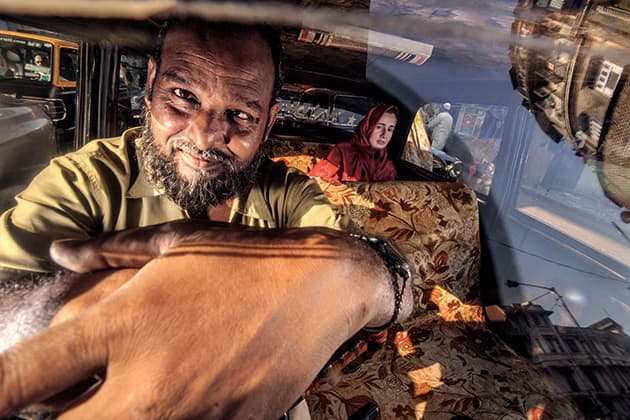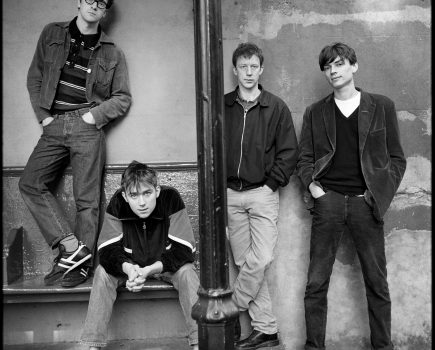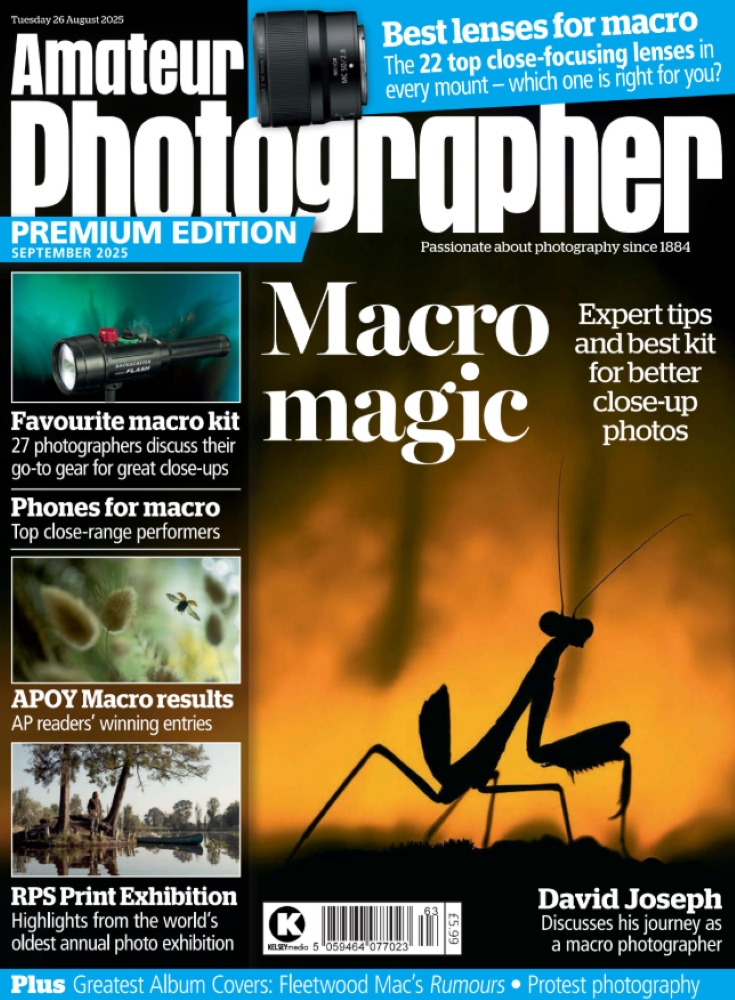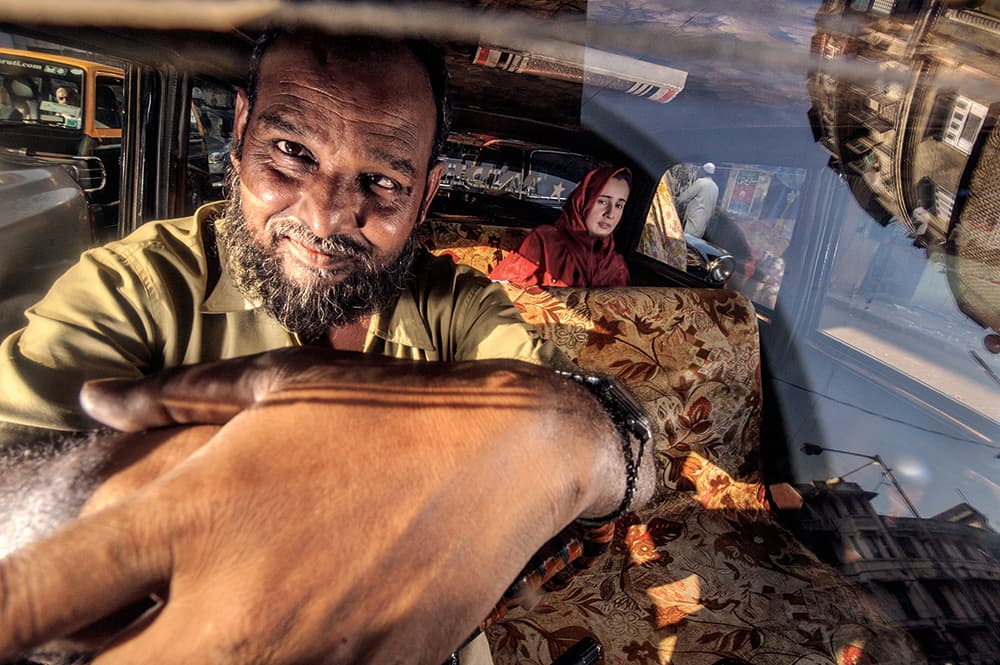
Dougie has referred to these elaborate taxis as ‘Bollywood disco bars on wheels’
Glaswegian photographer Dougie Wallace has gained a reputation as one of the UK’s leading street photographers. Known for his brash and bright portraits of drunken revellers on the streets of Shoreditch in London and Blackpool, and he has a distinct style that is garish and raw, leaving nothing to the imagination.
For his project Road Wallah, Dougie turned his attention to the streets of Mumbai in India, and its black and yellow cabs, the Premier Padmini taxi. First introduced to Mumbai in the 1960s, these brightly adorned vehicles, with their psychedelic and patterned interiors, were once omnipresent, the streets heaving with the sight and sound of more than 60,000 cabs.
It was over a four-year period, with more than 17 visits to Mumbai, that Dougie gave the taxi drivers and their passengers a taste of his infamous street-photography style, seeking to capture the everyday humanity amid the chaos of the city. ‘I was jumping at the taxis at traffic lights with these three flashguns,’ reveals Dougie. ‘And then I would start shooting through the side window. I didn’t ask anyone’s permission, either.’
His bold ambush technique reveals some thoroughly frank portraits, capturing emotions and expressions before the subject becomes self-conscious and puts up a guard. ‘I was trying to catch them unawares,’ says Dougie. ‘I would concentrate on capturing somebody’s face, or I tried to capture a moment, for example, when somebody jumped in the cab, or when the taxi stopped outside Mumbai Central station and I’d shoot them. Or I’d be shooting them when the driver has to give them change.’
On other occasions, Dougie would turn his attention to the inside of the cab, taking a ride and photographing at the same time, shooting through the window or windscreen at the unfolding scenes outside. Whether shot from inside or out, the resultant expressions of the drivers, passengers and passers-by span a wide spectrum – from surprise and shock to irritation and exhaustion.
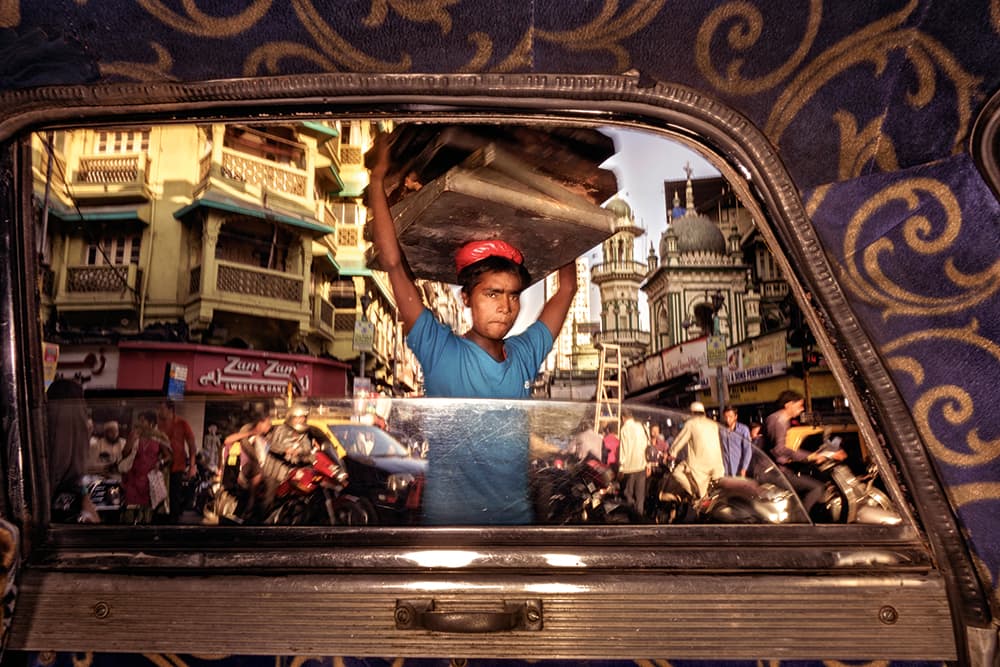
The streets and people of Mumbai serve as a dynamic and intense backdrop
Street photography using flash: Method in the madness
Dougie has cleverly highlighted these in all their glorious detail, thanks to his use of three flashguns, as mentioned previously. ‘One is off-camera, connected with a cable cord, and two are on brackets on my Nikon D800 – one pointed straight down the lens and the other coming off a little bit to the side,’ he explains. ‘Then I’m actually just trying to hit them with this flash and capture their expressions. The driver is only about 8in [20cm] away from me, as they’re really small cars.
‘The windscreen also goes straight up, so you’re shooting straight through the glass, unlike modern cars’ windscreens which are sloped, so that helps eliminate any reflections.’
Dougie’s use of flash is crucial in achieving the overall look and feel of his portraits, but the intensity of three flashguns meant that shooting during the middle of the day was near impossible, as the flash would wash out and overexpose the already bright ambient light. So he made the decision to shoot only between 5.30pm and 6.30pm. ‘That last hour of light is the best time to get the shots, as you can balance the ambient light,’ he explains. ‘You get a nice light, plus you sometimes get the setting sun acting as a backlight.’
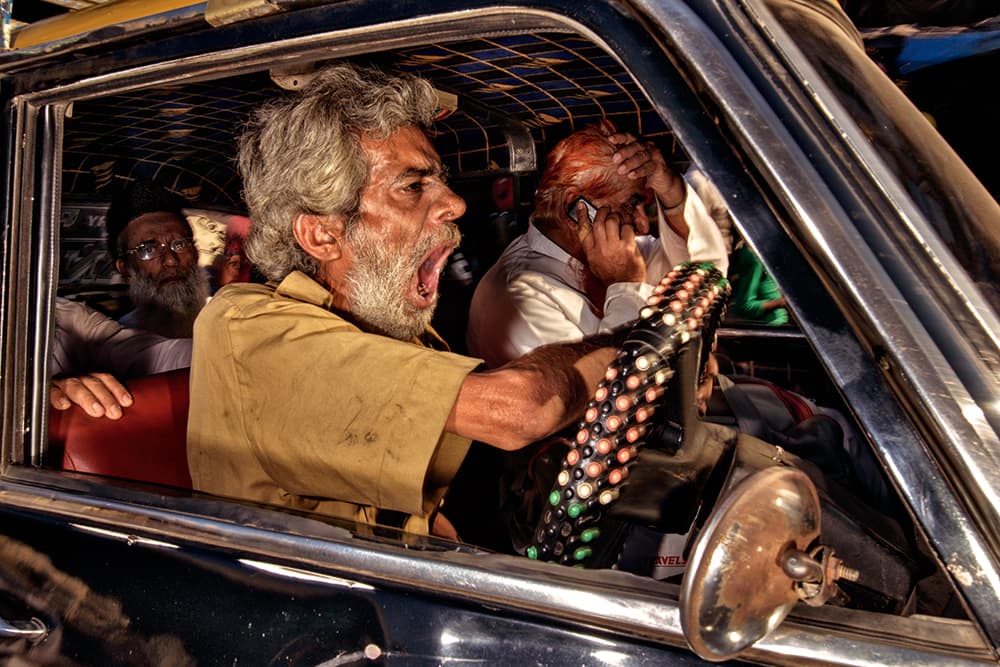
Dougie’s project was four years in the making and saw him risking life and limb by dashing out onto the busy roads
Street photography using flash: On the fly
Shooting with such a large set-up, as well as juggling the dodgem of taxis to get his shots, meant Dougie had to compose his images as he took them. ‘I was often moving as the taxi was moving, so I’d have to compose my images as I took them, concentrating on faces and expressions,’ he says. Not only were the subjects reacting to his camera and flashguns, but they were also reacting to Dougie’s presence, as he would shoot extremely close to them, almost becoming a part of the picture by proxy. Yet the images don’t feel claustrophobic, thanks to his 18-35mm wideangle lens, which lets subjects have breathing space among the often cluttered and colourful backgrounds.
With Road Wallah, Dougie hasn’t fallen into the trap of photographing the stereotypical clichés of somewhere exotic. Indeed, there is nothing trite about this series, which offers a fresh perspective on the beating heart of Mumbai and what, quite literally, drives the city. ‘A lot of the images you see of Mumbai are very much travel photography in style,’ says Dougie. ‘I wanted to shoot something different, something a bit more conceptual.’
What began as a simple premise of photographing a driver through a windscreen now holds more significance than first realised: thanks to government legislation introduced in 2015 designed to curb pollution levels, the Premier Padmini has been consigned to the scrap heap. With the taxis all but gone from the streets of Mumbai, Road Wallah not only presents a glimpse into the city’s chaos and commotion but also serves as a final farewell to the iconic cab.
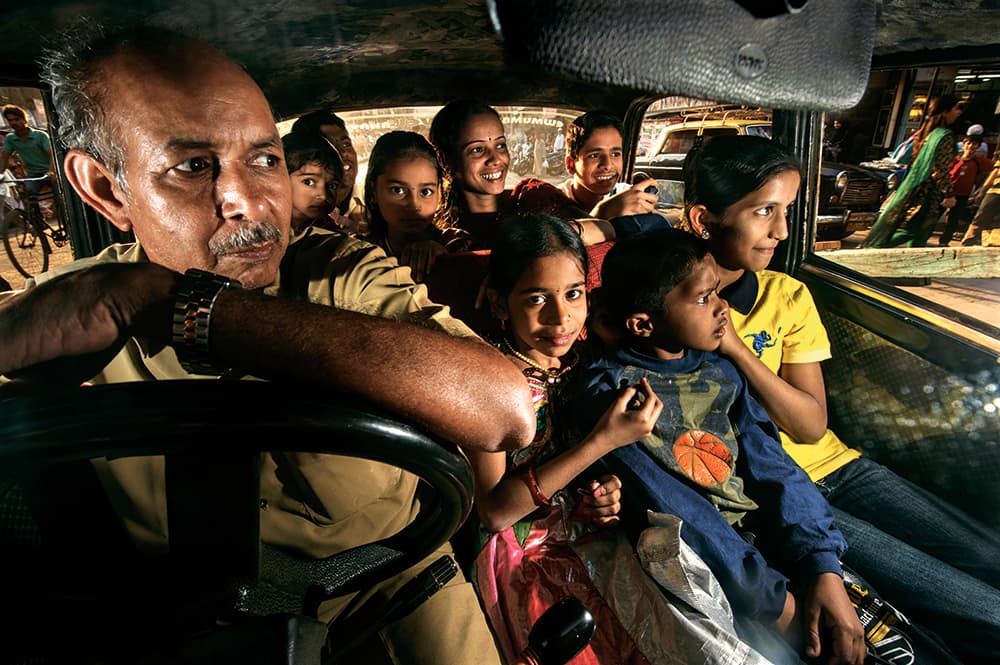
Due to the smash-and-grab nature of the images, Dougie had to compose his images on the fly
Further reading
Stags, Hens & Bunnies, A Blackpool Story
Published by Dewi Lewis, £28
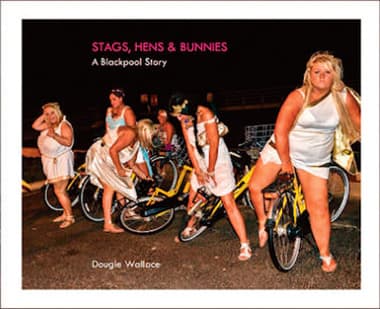
Dougie takes to the walkways of Blackpool to capture the often hedonistic and oddly captivating stag and hen dos that stagger through the town’s neon-soaked streets. Through his lens, the subjects’ rites of passage take on a strange quality that is at once repulsive but also strangely alluring.
Shoreditch Wild Life
Hoxton Mini Press, second-hand prices vary
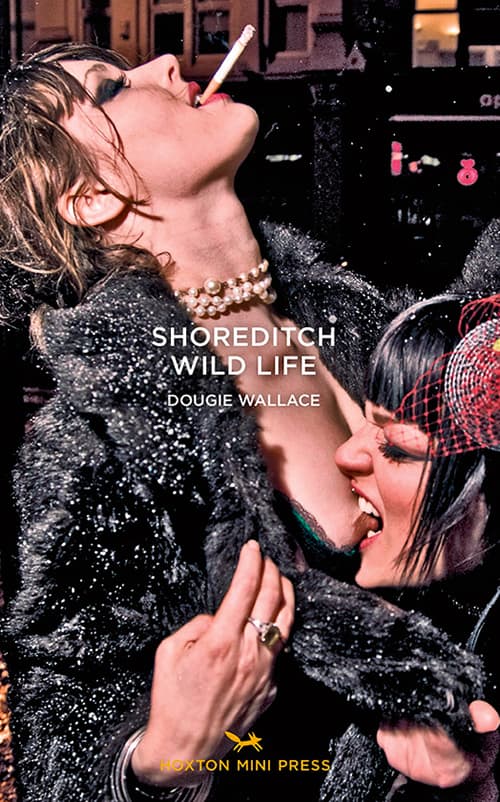
London’s Shoreditch is a strange melting pot of the painfully hip and fashionably old. Dougie’s images reveal a strange and decadent ‘interzone’ that hosts a variety of cultures, generations and ethnic backgrounds. You may need to do a little searching around to get hold of this compact book, which is now out of print, but it’s worth it.
AP 7 July 2012
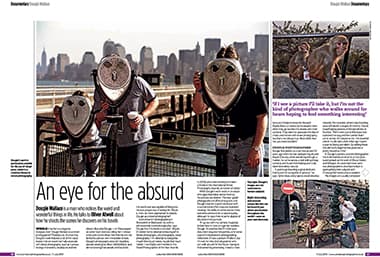
We spoke to Dougie back in 2012, just as he was gaining recognition. Perhaps most notable is his quote: ‘I’m not sure if there’s anything I wouldn’t photograph. Pretty much anything is fair game.’
Dougie Wallace grew up in Glasgow, hence his moniker Glasweegee. Recognised for his distinct, direct style of expressive street photography, his work has been featured in the New York times, and Germany’s stern, among others. His book, Road Wallah, is published by Dewi Lewis, priced £35.

